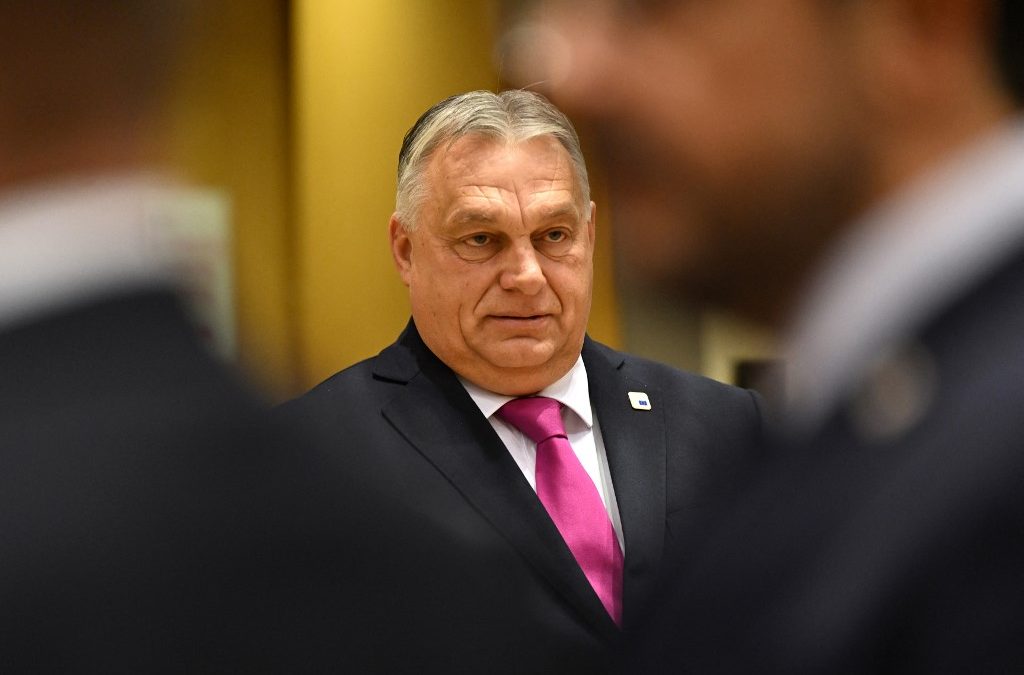During a more than two-hour exchange with the Hungarian presidency, ambassadors from 25 countries criticized Budapest for attempting to conduct EU foreign policy without the consent and will of the other capitals, according to EU sources for Polish correspondents. Only Slovakia did not speak.
The discussion on the role and powers of Hungary as the presiding country was requested by Poland. The debate took place during a regular meeting of ambassadors in Brussels, chaired by the representative of the member state holding the EU Council presidency – since July 1, this has been Hungary.
“All 25 countries expressed dissatisfaction or anger with the development of the Hungarian presidency,” reported the EU source about Wednesday’s meeting. Ambassadors took a position on the visits of Hungarian Prime Minister Viktor Orban, who went to Kyiv the day after assuming the presidency, and then to Moscow and Beijing, and participated in the summit of the Organization of Turkic States. According to most countries – as the EU source emphasized – it was “Orban’s game” pretending to represent the EU.
“The discussion showed the unity of 25 countries in assessing the Hungarian presidency,” we hear. The duties of the presidency were also reminded during the meeting, emphasizing that it does not play any role in representing the EU in foreign policy.
Ambassadors most often spoke about the loss of trust, accusing Hungary of instrumentalizing the presidency or violating treaties. They also called for Budapest to withdraw its veto, as it is the only capital that does not agree to the eighth tranche of support for Ukraine under the European Peace Facility (EPF).
“In just nine days of taking the presidency, Hungary lost the remaining trust it enjoyed,” commented an EU diplomat. He emphasized that Orban’s actions serve neither the Union nor peace. “They play to Putin’s advantage and his war project,” he added.
Visits by Orban were defended by Hungarian Minister for European Affairs Janos Boka. At a press conference on Wednesday in Brussels, he emphasized that it is not customary for the leaders of member countries to inform the EU about their foreign visits. He added that the Hungarian Prime Minister reported the course of these visits – although he did not have to – in a letter to the President of the European Council Charles Michel, as well as to the heads of governments and member countries. “Leaders will do with the conclusions from these visits as they see fit,” he stressed.
Opinions in Brussels about the Wednesday debate are divided. A PAP interlocutor noted that the debate was symbolic. “Hungary will change its behavior only if it feels tangible consequences of its actions. However, such a debate may have significance in the Brussels bubble, where Orban already has a bad reputation and does not inspire trust,” he emphasized.
Boka declared that Hungary would act as an honest broker during its presidency. According to him, they are also ready to organize a hearing under the Article 7 procedure against Budapest “if there is such a will among the majority of countries.”
Diplomats unanimously emphasize that there is no question of potentially extending the Polish presidency at the expense of the Hungarian one (Warsaw will take over the EU Council presidency for six months on January 1, 2025). There is also currently no boycott of meetings organized by Budapest by ministers, who could potentially be replaced by lower-level representatives. (10.07.2024)
 go to the original language article
go to the original language article
